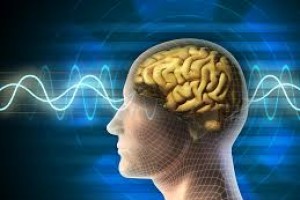PARKINSON’S DISEASE
A degenerative disorder that affects the brain and the
central nervous system. Often this condition affects the elderly population but
at times can also catch up with younger lot.
In this disease the patients have difficulty in carrying out
movements at a normal speed. Hence they take longer to perform even normal day
to day activities.
Causes – Large population studies have
indicated that people who have a family member or a relative suffering from the
disease have a higher chance of developing the condition themselves. Several
genes are responsible for carrying the disease in many other cases.
Symptoms – Tremors (trembling or shaking , it
mainly affected the hands and feet) , Stiffness and slowness of movements.
Difficulties in maintaining posture and balance , problems with urinating, slow
bowel movements , sleep disturbances,
speech and swallowing difficulties.
Treatment –
You may not need any
treatment during the early stages of Parkinson’s disease as symptoms are usually
mild. However you may need regular appointments with your specialists so that
your condition can be monitored.
The most devastating part about Parkinson’s disease is that
one has to live with this condition lifelong as it has no cure. But that should
not refrain patients from seeking a treatment. Medications can help control
your symptoms. In some later cases surgery may be advised. The principal
surgical option is deep brain stimulation.
Home and Natural Remedies –
While there is no food proven to help in Parkinson’s disease.
But some foods may help ease some of the symptoms. For example eating foods high in fiber and
drinking an adequate amount of fluids can help prevent constipation that is
common in Parkinson’s disease.
Exercise – It may increase your muscle
strength ,flexibility and balance. Please consult with a
physiotherapist
to learn an exercise programme that works for you. A physiotherapist can work
with you to relieve muscle stiffness and joint pain through movements and exercises. You may also try exercises such
as walking, swimming etc .
Some precautions during
walking –
Try not to move too quickly
Look in front of you ,
not directly down while walking.
Avoid carrying things while you walk.
Occupational therapy- Daily living activities such as
dressing ,eating, writing, bathing can be difficult for people with this
disease. An occupational therapist can show you techniques that make daily life
easier.
Speech and language
therapist
can often
help you improve problems like speaking,
swallowing etc.
Acupuncture- It is not a cure for Parkinson’s. it just makes sure that the symptoms and
effects of Parkinson such as sleeplessness ,depression and dementia are
reduced. It can also have a positive effect on the muscular spasm, cramps, tremor
,rigidity etc.
Supplements of vitamin
E
– It is suggested
that people who suffer from Parkinson’s take around 900 – 1200 IU of vitamin
every day. It can soothe some symptoms of Parkinson’s disease.
Taking supplements or eating food that has a high
concentration of
omega 3 fatty acids
such as salmon fish, flax seeds, walnuts etc.
Green tea-
Research shows that green tea shows signs of being able to
help against Parkinson’s disease. Green tea polyphenol protect dopamine neurons
and also it slashed the neuronal death rate by half.
In Ayurveda Brahmi is very effective in this. It
improves the blood circulation to the brain and even protects the brain cells.
Turmeric- Curcumin is found in turmeric. It
disrupts the proteins responsible for the disease. It also works as
anti-inflammatory and anti microbial.
Fish oil- It creates anti depressant effects
in patients. It may be better to combat depression instead of prescription
medications.
Massage helps in reducing muscle tension and stiffness.
Meditation and yoga helps to reduce stress in body.
Antioxidants- Diet should be rich in antioxidants
such as Blueberries , lemons etc which are rich in antioxidants.
Avoid fried food- These products harden around the cells reducing the ability of
nutrients, fluids and oxygen in and toxins out.
Long term care offers a vast range of medical, personal and
social services that are required to meet the physical, social and emotional
needs of people who have long term illness or are disabled by Parkinson’s disease.
Hope that this information will be useful for you.
Dr. Suman Setia BAMS DNHE PGDHHM
Also click to see : 1) Disc Degenaration Disease
3) Stomach Infection (Gastritis)

